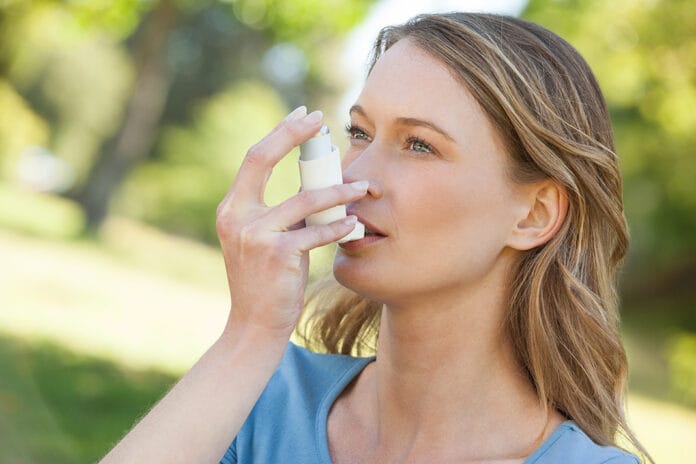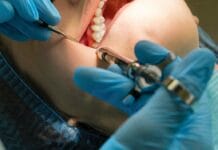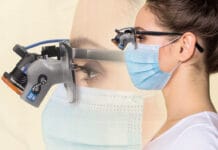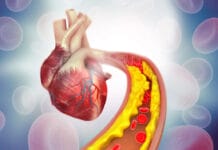Last year, this writer took their child to the doctor for asthma medication. The doctor told the child to brush their teeth each time after using said medication. This writer asked why: What damage can such medication cause? The doctor said, “I don’t know. Something to do with your teeth. Ask your dentist.”
So, dental professionals, would you know how to answer this question when your patients ask?
The research in Oral Health Assessment in Children Aging 8–15 Years with Bronchial Asthma Using Inhalation Medication attempts to answer this question: Exactly what sort of damage can asthma medication/inhalants cause? Asthma and its medications can negatively affect the dental status of our children. Though most dental professionals know this already, this study “contributed useful information to further substantiate the relationship between asthma and caries, and it helps further to investigate the concept of causality, the exposure time, the inhaled daily dose, the form, and mode of administration.”
Inhalant Medication and Teeth
Asthma is one of the most prevalent chronic diseases globally, with an average of 300 million people who have bronchial asthma, specifically each year. In India, 10% of patients are diagnosed with bronchial asthma, and most cases involve children between the ages of 8 to 15. Such asthma makes itself known in several ways:
- Wheezing
- Shortness of breath
- Chest tightness
- Cough, severe
- Disruption of daily life/current activity
The severity of the disease can depend on environmental factors that exacerbate the condition. The inhalers used in immediate treatment leave a significant amount of medication behind in our patient’s oral cavity.
Asthma and Our Patient’s Oral Health
In this study, the researchers looked at the four most prevalent dental problems:
Asthma and Caries
The medication contains fermentable carbohydrates and sugar, and its effects lead directly to caries. The more a person uses the medication/inhaler, the higher the risk of caries they may have. The medication itself reduces salivary flow and changes saliva’s composition (including pH). A considerable increase in dental biofilm was also more prevalent in this research. The children who used an AeroChamber attached to their inhaler did have a better DMFT score.
Asthma and Biofilm Accumulation
Pathogenic bacteria in the already decreased levels of saliva increase the amount of plaque present. Specifically, this research showed a positive correlation between drug duration, dosage, and DMFT score.
Asthma and Periodontal Disease
Both asthma and periodontal disease cause inflammation and immune deficiencies. Sometimes, people with asthma breathe mostly through their mouths rather than their noses, which dries out a mouth already hurting from a lack of saliva. If a child is taking high doses of the drug for a long period of time, then periodontal disease will most likely be a problem without early intervention. The steroids decrease bone mineral density, but the use of an AeroChamber also helps decrease the effects.
Asthma and Candidiasis (Thrush)
Out of all the children studied (400+), none of the kids in the non-asthmatic control group had thrush, but 14% of the kids with asthma did. The growth of candidiasis is attributed to the immune deficiency caused by steroid use. Of course, the lack of appropriate levels of saliva didn’t help, as the medication sat on the teeth (“only 10%–20% of the inhaler dose reaches the lungs and the rest remains in the oral cavity”) and wasn’t washed away quickly enough.
Talk to Your Asthmatic Patients about Proper Oral Care
Many of these inhalers contain steroids, which weakens a person’s immune system and increases their chance of infection. The medication left behind can demineralize teeth and increase the severity of periodontal disease and/or caries risk. The more the inhaler is used, the higher the caries risk can become. Oral candidiasis is common. In this study, the patients with asthma had significantly worse oral health when compared to their non-asthmatic counterparts.
It is recommended that patients with asthma rinse their mouths out with water, a water/sodium bicarbonate mix, a neutral or high (alkaline) pH mouth rinse, or fluoride rinse after using an inhaler to ensure the medication has been removed from the oral cavity. Chewing sugar-free gum or sucking on a xylitol “candy” after inhaler use can help stimulate saliva, which aids in remineralization, and balancing pH if rinsing is not an option. Drinking milk, eating cheese, or eating sugar-free yogurt after inhaler use can help balance pH as well. Patients should be instructed not to brush their teeth immediately after inhaler use but to wait 20-30 minutes to allow the oral pH to rise (Stephan Curve). Educating patients and caregivers on proper brushing and interdental cleaning instruction and the importance of regular dental visits goes without saying but should be mentioned.
Often, patients are not educated by their primary care physicians on how their medication can affect their oral health and the steps they can take to avoid dental complications. This is why dental hygienists’ knowledge and patient education are so valuable. Oral effects of systemic diseases and conditions and the oral effects of medications used to treat them are a dental hygienist’s wheelhouse, which is why our job is so important.












